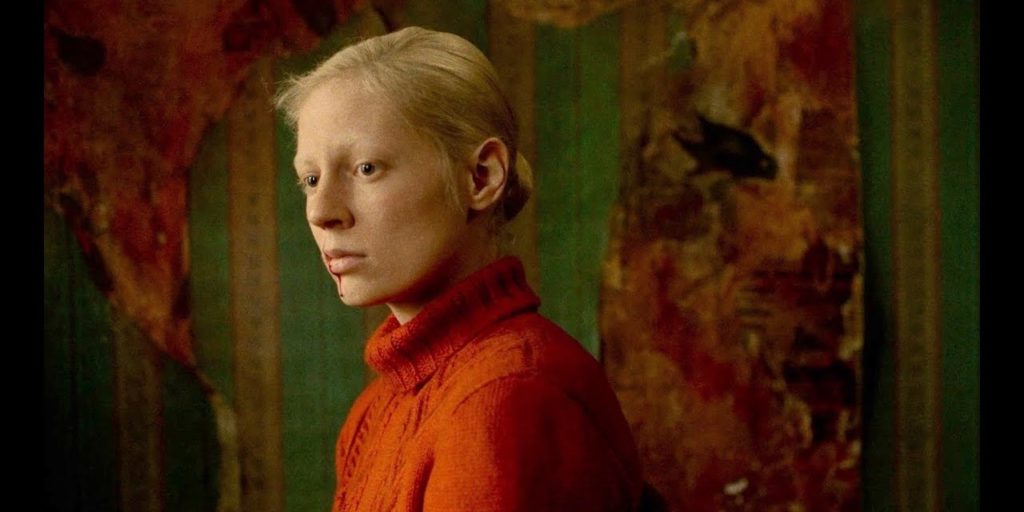“It’s like Disneyland.”
That’s what my colleague said as we pulled up in front of the Palais des Festivals. It’s his first year of visiting the largest congregation of the international film community, and I can see where he’s coming from. For nearly two weeks, representatives of the industry mingle with filmmakers from around the globe, both veterans and aspiring newcomers alike, in a frenzied spectacle that makes Comic-con look like an afternoon siesta. Navigating this circus can be daunting, if not downright overwhelming. But the thrill of Cannes is in the anticipation for films which can surprise us all, for better or for worse, and it was precisely this aura which my colleagues and I entered our first films of this year’s festival. Over the next ten days, I will be relaying some of the films I have seen and the events I’ve witnessed at this strange paradox of stress and joy that can only come from Cannes.
Bacurau

I began my last year in Cannes with a Competition film in the Salle du Soixantième with little expectations going in, and I did the same this year as well. The film in question I saw last year was Burning, which ended up being my favorite film of 2018, so needless to say whatever first film I saw this year had a high bar to surpass. Bacurau doesn’t quite do the job, though it does utilize a similar tactic of establishing a particular aesthetic synonymous with it’s genre before transforming into something altogether quite different. If Lee Chang-Dong’s film successfully traversed genres to encompass a global paranoia over the specter of “alternative facts”, the latest from Kleber Mendonça Filho (Aquarius) and Juliana Dornelles (O Atelie Da Rua Do Brum) confronts a similar political quandary, albeit through the bloodily cathartic prism of exploitation films. The fact that Udo Kier’s name garners the coveted “and” credit during the opening titles should be hint enough for what is to come.
Set he eponymous village of the film faces a series of increasingly strange events following the passing of their 94-year old matriarch. Professor Plinío (Wilson Rabelo), the son of the recently deceased Carmelita, attempts to locate the village on an internet map for his class of schoolchildren, only to discover that it is completely non-existent. Then one of the villagers, while riding his motorbike, finds himself followed by something resembling a miniature UFO. Then a pair of tourists from São Paulo bedecked in brashly bright colors arrive on their own motorcycles, and it is only here where the real trouble begins. I’m being careful to avoid revealing too much of the plot, yet any eagle-eyed viewer will note that the name of the school as Joao Carpintiero, a Portuguese riff on John Carpenter. That the track Night from Carpenter’s first solo album prominently appears in the second half of the film only further underscores the homage paid to works like Assault on Precinct 13 and even Halloween when a small child from the village makes the mistake of straying too far after dark.
Filho and Dornelles look beyond the superficial pastiche practiced by something like Stranger Things to capture Carpenter’s fierce political consciousness in a movie like They Live reconfigured within a Brazilian context. Indeed, the diaphanous contrast between the naturalistic performances of the villagers and the grotesque caricatures of the perpetrators of the mysterious events in the film proves to be quite jarring, which is certainly the point. Kier’s entrance in the film is marked by him literally bursting into frame, and the script gives him a series of snarling one-liners like “Next time you wanna piss somebody off, don’t use so stupid clichés.” But the film’s righteous political fury is rooted in troubling issues of colonialist intervention promulgated by technological innovation. The corrupt mayor, a bumbling schmuck named Tony, Jr. (yes, really) is barely indistinguishable from any other corrupt politician South America has encountered in the last half century, including the current fascist occupying Brazil’s highest office. But when Kier smugly sneers “I have documents that prove we were not here,” there is an element of the fragility of political and cultural reality that bears unquestionably queasy resonance in the current climate.
This contrast between the heroes and villains sometimes devolves into character actions which seem less motivated by character than the political agenda of the filmmakers (a post-murder act of coitus is not nearly as clever or scathing as it wants to be). But the rendering of the villagers as both innocent victims and fearful avengers is the strongest emotional anchor to the film’s politics, and watching the shadow of an elderly villager scurry behind one of the villains reconstitutes the archetypal figures of hunter and hunted to admittedly cathartic effect. What Bacurau, both the place and the film, are defined by is a root to a form of cultural historical identity that is at risk of being eradicated for reasons not entirely clear to anyone involved. Not for nothing does the oft-mentioned museum, apparently the biggest attraction for tourists (though the two bikers who visit the town have no clue of it’s existence) operates as a critical site of historical affirmation and brutal retribution. Bacurau is political pop cinema which cuts less like a scalpel and more like a shotgun to the face.
Beanpole

With his second feature, Kantemir Balagov crafts something which resembles a love story, if love can be defined as the subsumption of one human being by another who is bereft of meaning or purpose. An apprentice under the legendary Russian director Alexander Sukorov, Balagov’s aesthetic bears some similarities with a work like Russian Ark, particularly in it’s blocking of long-shot sequences. But Balagov is attempting to articulate his own artistic concerns, and at only 27 years old, he has made a peculiarly poignant statement on how broken human beings provide help for one another.
The particular people in question are Iya (Viktoria Miroshnichenko) and Masha (Vasilisa Perelygina), two women who served in the logistics field of the Russian army during the war. The former works as a nurse and cares for Masha’s small son Pashka (Timofey Glaskov) as her own while simultaneously suffering from what Masha calls “freezing fits” where she becomes completely immobile, emitting choked gasps for air. Her rattled breathing is the very first sound we hear in the film, and it establishes the damaged state many of the characters are in, and by extension the post-War Russia they live in. When several patients entertain Pashka by impersonating animals, including a dog one of them blithely remarks, “Where would he have seen a dog? They’ve all been eaten.”
This blunt prevalence of death never strays far from the lives of these characters, and it emerges unexpectedly when Iya, while playing with Pashka, suffers one of her spells and tragically suffocates him. Masha returns soon thereafter and, when asking where Pashka is, doesn’t take very long to draw the conclusion that he has died. She is curiously nonreactive to this news, and she decides to go out on the town with Iya. They encounter two young men. One of them, Alexander, who wears a perpetual hangdog expression, has sex with Masha in his car. “Thank you,” he says afterwards. A moment passes before he then says, “You’re welcome.”
So already we are approximately a half hour into this film and you are doubtless bewildered by what I’ve described. I know I certainly was, but Balagov has enough confidence as a filmmaker to take his time telling his story. His patient approach will strike some viewers as lugubrious. But if the events of the plot don’t all neatly inform the other, they nevertheless reiterate particular strains of the film’s attitude toward compassion and recompense. A subplot featuring a completely paralyzed soldier (Konstantin Balakirev) and his wife arguing with the director of the hospital Nikolai Ivanovich (Andrey Bikov) over the option of euthanasia is one of the most quietly haunting stretches of the film. It also results in providing Masha the incentive she needs to ask of Nikolai Ivanovich an unspeakable favor.
The actions of particular characters have lasting consequences which force them all to emerge from the catatonic hindrance of their trauma. “I want another human inside me,” Masha says, though this desire has no particular sexual or erotic specificity. The original Russian title of the film, “Dylda”, can be approximated as akin to clumsiness or awkwardness. Indeed, when Masha is bequeathed a green dress by a neighbor, she twirls in initially girlish delight only to devolve into a feverish, frenzied spinning that devolves into frustration. The color green is the most common element of the film’s color palette, and if it generally connotes desire, then the desire in this case can only be for the sake of itself. Many of these characters learning what it is they are exactly lining for is the primary arc of the film, and this arc culminates in a series of emotionally riveting sequences during the climax.
Balagov admitted that his film was influenced by the long-censored nonfiction book The Unwomanly Face of War, which relays the testimony of Russian women who served in the war. This look at PTSD through a female perspective is a novel approach, albeit not one without narrative or ideological shortcomings, particularly in the way the film teeters dangerously close toward indulging in an exploitative view of feminine sexuality. A rape scene captured in a static shot that lasts for a few minutes curtails graphic details yet is nevertheless troubling for the way it’s clinical approach betrays the distanciation afforded to the film’s male director.
What makes Beanpole surpass it’s flaws is a cogent articulation of the unsentimental loneliness of fractured people who resort to habitual dissatisfaction. There are several moments where the characters make reference to a vision of “peace for Russia”, though in Beanpole peace is defined in a personal, psychological yearning for sublimity. That Balagov captures this sublimity in moments and sequences of his sophomore effort is proof enough of his promise as a filmmaker.
Tomorrow: my thoughts on Atlantique, the latest from Patricio Guzman and Luca Guadagnino, and Rocketman
